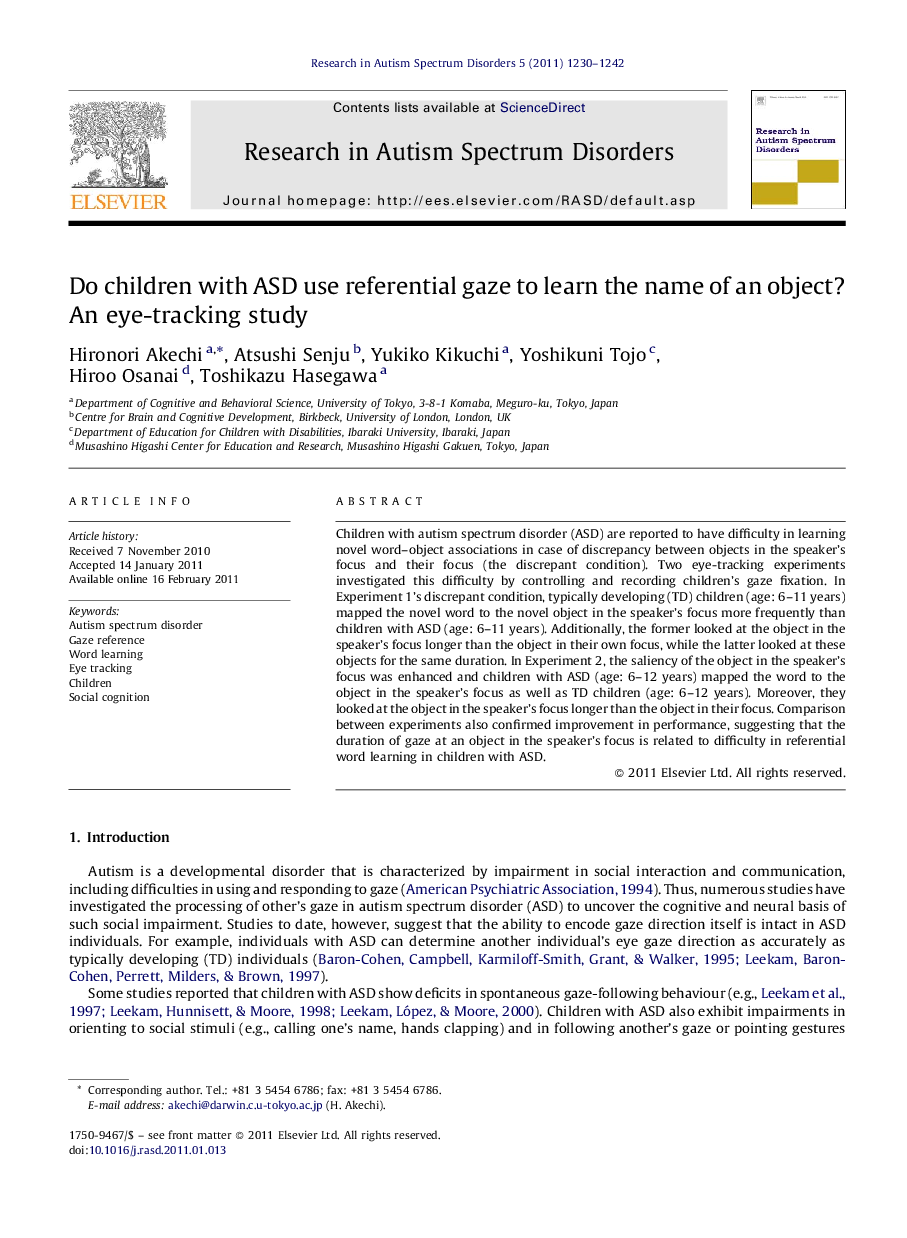| Article ID | Journal | Published Year | Pages | File Type |
|---|---|---|---|---|
| 370783 | Research in Autism Spectrum Disorders | 2011 | 13 Pages |
Children with autism spectrum disorder (ASD) are reported to have difficulty in learning novel word–object associations in case of discrepancy between objects in the speaker's focus and their focus (the discrepant condition). Two eye-tracking experiments investigated this difficulty by controlling and recording children's gaze fixation. In Experiment 1's discrepant condition, typically developing (TD) children (age: 6–11 years) mapped the novel word to the novel object in the speaker's focus more frequently than children with ASD (age: 6–11 years). Additionally, the former looked at the object in the speaker's focus longer than the object in their own focus, while the latter looked at these objects for the same duration. In Experiment 2, the saliency of the object in the speaker's focus was enhanced and children with ASD (age: 6–12 years) mapped the word to the object in the speaker's focus as well as TD children (age: 6–12 years). Moreover, they looked at the object in the speaker's focus longer than the object in their focus. Comparison between experiments also confirmed improvement in performance, suggesting that the duration of gaze at an object in the speaker's focus is related to difficulty in referential word learning in children with ASD.
Research highlights► ASD children have difficulty learning a novel word by referring the speaker's gaze. ► They do not have a preference for the object in the speaker's focus. ► Enhancement of the saliency of the object improves their performance.
